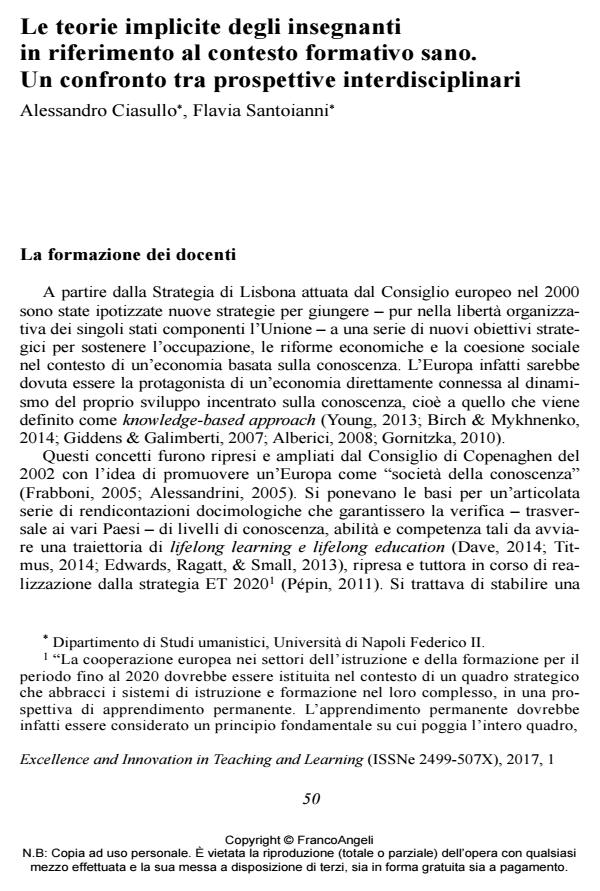The Implicit Theories of Teachers with Reference to the Healthy Training Context. A Comparison of Interdisciplinary Perspectives
Journal title EXCELLENCE AND INNOVATION IN LEARNING AND TEACHING
Author/s Alessandro Ciasullo, Flavia Santoianni
Publishing Year 2017 Issue 2017/1
Language Italian Pages 30 P. 50-79 File size 282 KB
DOI 10.3280/EXI2017-001004
DOI is like a bar code for intellectual property: to have more infomation
click here
Below, you can see the article first page
If you want to buy this article in PDF format, you can do it, following the instructions to buy download credits

FrancoAngeli is member of Publishers International Linking Association, Inc (PILA), a not-for-profit association which run the CrossRef service enabling links to and from online scholarly content.
This paper addresses - with the methodology of Grounded Theory - the perception that teachers have of an effective environment and of their possibilities to modify it. The study is part of the European trend to enable training programs for pre-service and in-service teachers. From the survey, teachers attribute to the environment a decisive role in influencing the student’s successful training, but only in a particular situation and condition. This creates an interpretative ambiguity on the real role of the environment. The lack of awareness can have significant repercussions in the field of education such as building for students potentially unhealthy environments.
Keywords: Teacher training; teaching and learning; educational environments; grounded theory; theory theory; pre-service/in-service teachers.
- Artificial intelligence and education: new perspectives for inclusion Francesca Buccini, Francesca Marone, in IUL Research 4/2025 pp.291
DOI: 10.57568/iulresearch.v6i12.757
Alessandro Ciasullo, Flavia Santoianni, Le teorie implicite degli insegnanti in riferimento al contesto formativo sano. Un confronto tra prospettive interdisciplinari in "EXCELLENCE AND INNOVATION IN LEARNING AND TEACHING" 1/2017, pp 50-79, DOI: 10.3280/EXI2017-001004